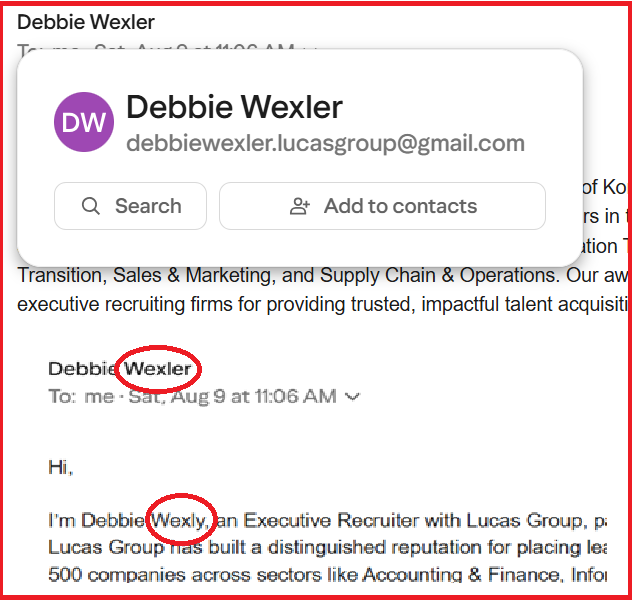A human resources (HR) leader that I worked with twenty years ago posted on LinkedIn that criminals were imitating her LinkedIn account and using her name in emails and direct messages.
I personally received two emails this week from fake recruiters as shown in the following image. Notice the gmail account and that the last name doesn’t match (a sure sign of generative artificial intelligence or a foreign actor). I checked LinkedIn and Debbie Wexler is a real recruiter but I know this email isn’t from her.

Here’s how it usually works: someone reaches out on LinkedIn, email, or even text, saying they’re hiring for a well-known company. The job sounds amazing: great pay, work-from-home, flexible hours.
But once you show interest, they’ll ask for personal info, like your Social Security number, bank details, or a “small fee” for training materials. Some will even send you a fake check for “equipment” and then ask you to send some of the money back. By the time the bank flags it as fake, your money’s gone.
What’s worse than losing some money is that people are quitting their current jobs for these fake jobs!
To avoid getting scammed, slow down before you respond. Look up the recruiter’s name and the company directly—don’t just trust the email address or profile. Real recruiters won’t pressure you to hand over personal details before an official interview.
If something feels off, it probably is. Trust your gut, do your research, and remember—legit job offers never require you to pay first. The right job will never start with a scam.
